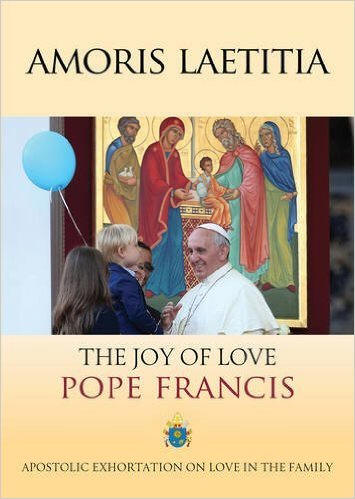Catholic Medical Quarterly Volume 66(4) November 2016
Editorial
AMORIS LAETITIA
Dr Pravin Thevathasan
 In
this post-synodal apostolic exhortation, Pope Francis has given us plenty
of pastoral considerations to reflect on. As one might expect, most of
them are in keeping with the tradition and are uncontroversial. I will
examine the more controversial elements and my own interests are not so
much regarding what it says about couples in "irregular" marital
situations but on its potential impact on wide areas of moral theology. In
doing so, I call to mind the observation of Fr Sean McDonagh that the
sensus fidelium must always be "involved in the discernment of the
faith and belief in the Church" (The Universe, 13 May, 2016). By
sensus fidelium is meant not a mere vote of hands but what has always
been held as true regarding matters of faith and morals. Any departure
from the tradition requires to be treated with suspicion.
In
this post-synodal apostolic exhortation, Pope Francis has given us plenty
of pastoral considerations to reflect on. As one might expect, most of
them are in keeping with the tradition and are uncontroversial. I will
examine the more controversial elements and my own interests are not so
much regarding what it says about couples in "irregular" marital
situations but on its potential impact on wide areas of moral theology. In
doing so, I call to mind the observation of Fr Sean McDonagh that the
sensus fidelium must always be "involved in the discernment of the
faith and belief in the Church" (The Universe, 13 May, 2016). By
sensus fidelium is meant not a mere vote of hands but what has always
been held as true regarding matters of faith and morals. Any departure
from the tradition requires to be treated with suspicion.
Are there such departures in Amoris Laetitia? Pope John Paul in his superb encyclical Veritatis Splendor teaches very precisely that there are moral absolutes and intrinsically evil acts. Of course, the Church has also always taught that the moral agent may not be subjectively guilty of sin owing to extenuating circumstances: ignorance, duress etc.
Unfortunately, Amoris Laetitia overstresses this subjective possibility by stating that those who are objectively engaged in mortally sinful behaviour may "have great difficulty in understanding the inherent value of the moral rule in question" and are thus "unable to act differently and decide otherwise." No doubt this is sometimes the case but often it will not be; there is also the serious issue of the danger of scandal where there is public (objective) sin and public communion.
Does the Holy Father believe in exceptionless moral norms? Surely, he does. But unfortunately Amoris Laetitia appears to say otherwise when it states that "it is reductive to consider whether or not an individual's actions correspond to a general rule or law." Moral rules, he suggests, "cannot provide absolutely for all particular situations." That might be true of 'positive' obligations but what about absolute 'negative' obligations (like the obligation not to intentionally kill innocent human beings or commit adultery)?
We are grateful for so much that Pope Francis has done since being elected as Pope. Unfortunately, on this matter, he appears to have caused some degree of alarm and confusion. The error of Neo-Pelagianism has been rightly condemned. Amoris Laetitia appears to have fallen into the opposite error of Neo-Calvinism when it states that some people are not capable of overcoming habitual sins even with the assistance of grace.
